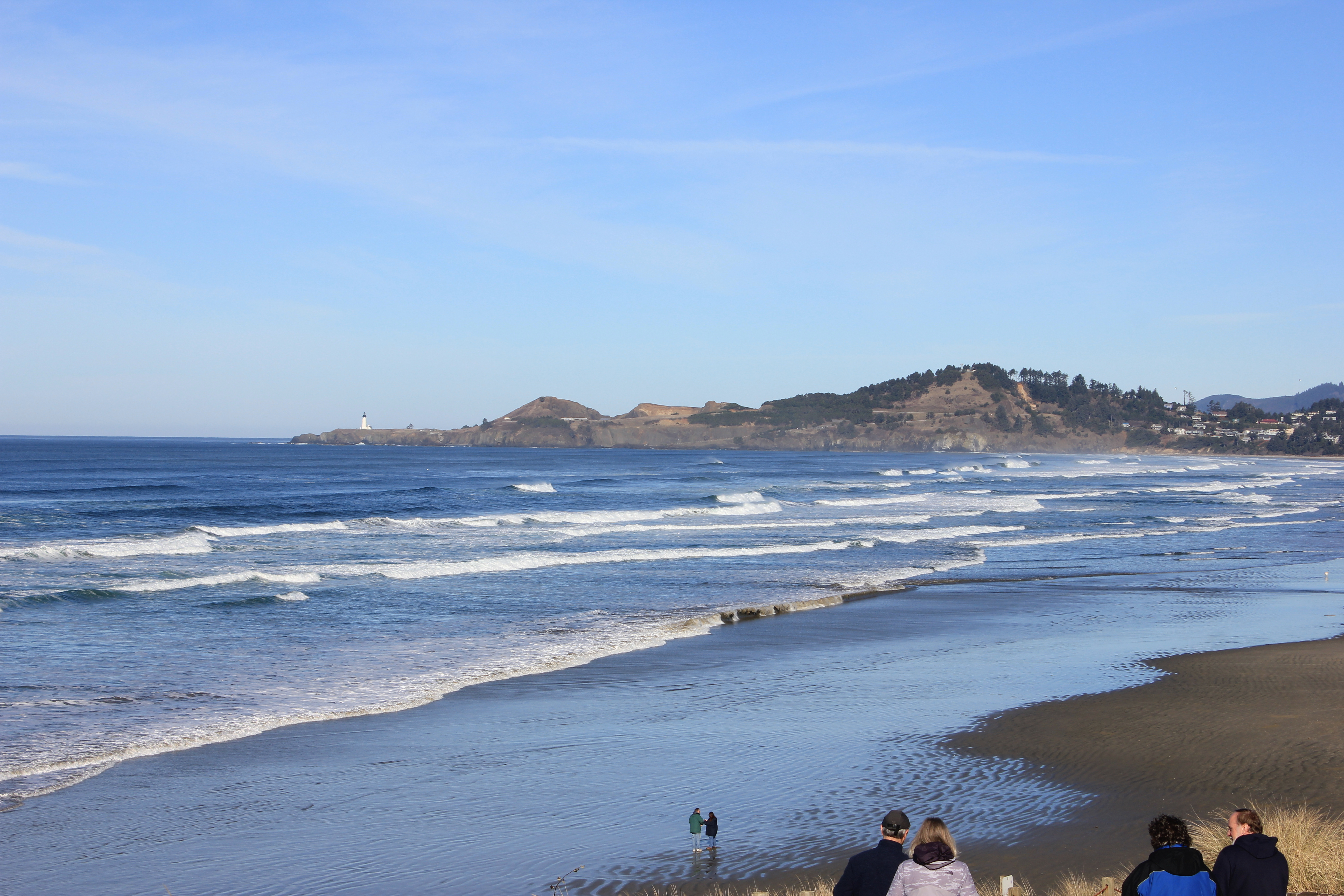
Oregon's Coastal Zone Management Program (OCMP) is currently undergoing a review by the National Oceanic and Atmospheric Administration (NOAA). Our state's ocean and coastal resources are among some of the most outstanding in the nation. How those resources are managed is critically important to our state's economy, culture and our resilience to an ever-changing climate. As such members of the public have a chance to express their views during the federal review process this week through September 22, 2023. 
Aerial view of South Slough and entrance to Coos Bay estuary demonstrates a number of uses important for coordination through a strong Coastal Zone Management Program
Oregon's Coastal Zone Management Program plays a vital role coordinating a network of local, state and federal agencies in the management of our coastal land/ocean use, ecosystems and resources. Our coastal zone is an alphabet soup of acronyms from various regulatory agencies and it's up to the our Coastal Program to really coordinate all those regulations and interests. Oregon was one of the first state's in the nation to develop such a coordinated program as part of our efforts to uphold the Coastal Zone Management Act (CZMA) - a key federal program that supports the protection, conservation and management of states' coastal resources. Oregon's program gets approved under CZMA and the federal government reviews the program and plan periodically to ensure it's meeting the state and federal goals.
An approved state program under CZMA enables a few really important things for our state's ocean and coastal zone. For one, an approved plan is funded by the federal government, which means millions of dollars for the state of Oregon in management capacity for coastal and ocean programs. Second, it provides the state with something known as "federal consistency", whereby the federal government, and all of their permitting authorities for development in our ocean and coastal zone, (think oil, gas, energy interests, mining, etc.), must abide by state regulations. This second point, is one of the most powerful advocacy tools in our state's pocket for protecting our nearshore and coastal environment. Remember the state's denial of LNG in Coos Bay??...federal consistency was the trigger.
NOAA is now seeking public input on the state's coastal program (OCMP). Surfrider Foundation is encouraging members of the public, particularly those that care about coastal conservation to speak up in suport of the program! This critical program is in ever-need of increasing capacity as climate change and emerging uses continue to challenge our ocean and coastal management.
Public Meeting Sept. 11: To learn more and speak out in person, attend the virtual public hearing - register here.
Written Comments by Sept. 22: Send written comments to becky.allee@noaa.gov
Specifically, NOAA is seeking feedback on aspects of the program related to:
-
Federal Consistency: which requires the federal government to comply with the
OCMP’s policies when taking any action that could affect Oregon’s coastal resources.
-
Note that this will be important in the near future regarding potential development of floating offshore wind, port expansions, or any other emerging industry on the coast.
-
-
Coastal Hazards and Resilience: Climate change is of particular concern for coastal communities and requires new and innovative strategies to adapt to sea level rise, ocean acidification, warming waters, and increased storms and flooding.
-
Ocean Planning: Maritime uses of our ocean, within three nautical miles of the shoreline, are governed by the state to protect marine resources and reduce conflicts among stakeholders.
-
New industries are emerging, such as aquaculture and renewable energy–which need to be considered in the Territorial Sea Plan
-
-
Estuary Planning: All of Oregon’s Estuary Management Plans are due for update in the coming years. The 40-year old plans did not address climate change, habitat loss or movement, water quality, endangered and invasive species.
-
The OCMP needs a strong framework for guiding local governments through comprehensive planning, and needs funding and capacity to provide support.
-
-
Public Shoreline Access
